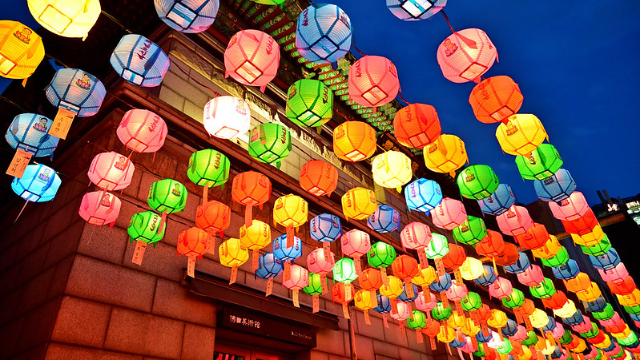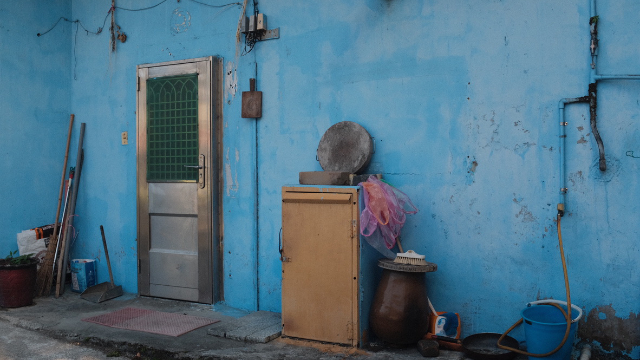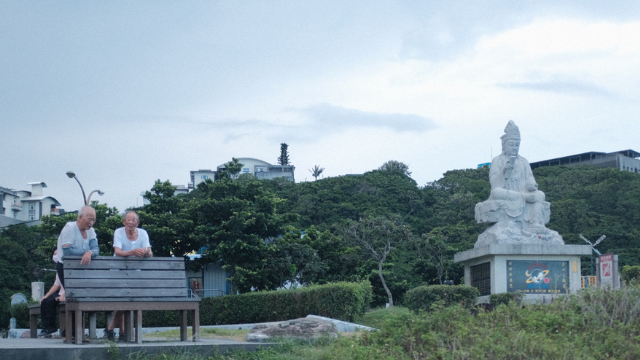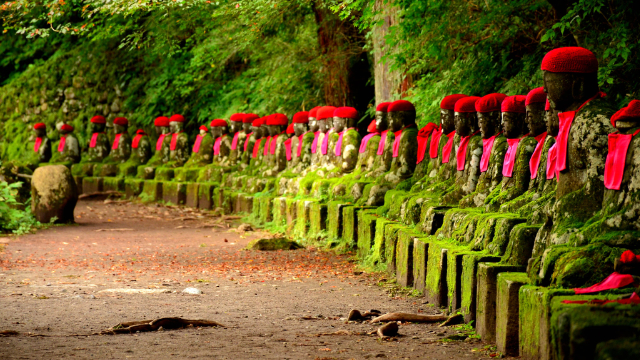East Asian Humanities Major
The East Asian Humanities major brings into focus the literatures and cultures of East Asia by expanding the boundaries of national traditions and bringing them in dialogue with each other. The curriculum seeks to prepare students for cross-regional comparative work with an emphasis on cultural and literary analysis, media studies and interdisciplinary humanities.
Course work in the major may be drawn from two or more national traditions in East Asia (China, Japan, South Korea, among others) touching on both the modern and classical periods. Students in the major must complete 8 courses (or 40 units). The program of study offers a great deal of flexibility. Though we recommend that students acquire a reading knowledge of at least one foreign language in their coursework, the major can be completed entirely through courses taught in English.
***To declare the Major, please schedule an appointment with the departmental advisor on Calendly. For quick questions about requirements, you can email her at cassandrajj@berkeley.edu. For questions or problems related to enrollment or placement exams, please contact Presi Diaz at diaz.mp@berkeley.edu***
MAJOR REQUIREMENTS (32 UNITS)
Lower Division
(8 UNITS)
Two Lower Division Courses, together covering at least two geographical or
cultural spheres.
BUDDSTD/EALANG C 50 Introduction to Buddhism
Chinese 7A Introduction to Modern Chinese Literature and Culture
Chinese 7B Introduction to Pre-modern Chinese Literature and Culture
Japanese 7A Introduction to Modern Japanese Literature and Culture
Japanese 7B Introduction to Modern Pre-modern Literature and Culture
Korean 7A Introduction to Modern Korean Literature and Culture
Korean 7B Introduction to Pre-modern Chinese Literature and Culture
Upper Division
Two Anchor Courses
(8 UNITS)
Chinese 186 Confucius and His Interpreters
EALANG 101 Catastrophe, Memory, and Narrative: Comparative Responses to
Atrocity in the Twentieth Century
EALANG 103 Writing, Visuality, and the Power of Images in East Asia
EALANG 106 Expressing the Ineffable in China and Beyond
EALANG 107 War and Empire in East Asia
EALANG 110 Bio-ethical Issues in East Asian Thought
EALANG 112 The East Asian 1960s
EALANG 119 The History of Heaven
EALANG 125 Writing the Limits of Empathy
EALANG C128 Buddhism in Contemporary Society
EALANG 180 East Asian Film: Directors and their Contexts
Four Elective courses
(16 Units)
Majors will be required to select four electives that span at least two regions across East Asia, rather than focusing on a single geographic, linguistic, or cultural sphere as in the existing Chinese and Japanese majors, or the Korean minor. These courses may include classical languages, and all courses numbered 101 and above, excluding Fourth and Fifth-year Advanced Language and Readings classes. A maximum of one year of upper-division courses in any modern language may count for the major. In addition, two of the above four courses must focus on the premodern period and two must focus on the modern period, so that students derive a deep sense of East Asian cultures across historical time.
These electives may be drawn from the following list of approved courses in premodern and modern East Asian literatures and cultures:
Premodern Electives:
Chinese 110: Introduction to Literary Chinese
Chinese C116: Buddhism in China
Chinese 120: Ancient Chinese Prose
Chinese 122: Ancient Chinese Poetry
Chinese 130: Topics in Daoism
Chinese 134: Readings in Chinese Classical Poetry
Chinese 136: Readings in Medieval Prose
Chinese C140: Readings in Chinese Buddhist Texts
Chinese 155: Readings in Vernacular Literature
Chinese 176: Bad Emperors: Fantasies of Sovereignty and Transgression in the
Chinese Tradition
Chinese 178: Traditional Chinese Drama
Chinese 179: Exploring Chinese Premodern Novels
Chinese 180: The Story of the Stone
Japan C115: Buddhism and Its Culture in Japan
Japan 116: Introduction to the Religions of Japan
Japan 120: Introduction to Classical Japanese
Japan 130: Classical Japanese Poetry
Japan 132: Premodern Japanese Diary (Nikki) Literature
Japan 140: Heian Prose
Japan C141: Introductory Readings in Japanese Buddhist Texts
Japan 144: Edo Literature
Japan 170: Classical Japanese Literature in Translation
Korean 130: Genre and Occasion in Traditional Korean Poetry
Korean 140: Narrating Persons and Objects in Traditional Korean Prose
Mongoln 110: Literary Mongolian
Mongoln 116: The Mongol Empire
Mongoln C117: Mongolian Buddhism
Tibetan 110AB: Intensive Readings in Tibetan
Tibetan C114: Tibetan Buddhism
Tibetan 116: Traditional Tibet
Tibetan 119: Tibetan Medicine in History and Society
Tibetan C154: Death, Dreams, and Visions in Tibetan Buddhism
Modern Electives:
Chinese 153: Reading Taiwan
Chinese 156: Modern Chinese Literature
Chinese 157: Contemporary Chinese Literature
Chinese 158: Reading Chinese Cities
Chinese 172: Contemporary Chinese Language Cinema
Chinese 187: Literature and Media Culture in Taiwan
Chinese 188: Popular Media in Modern China
Japan 155: Modern Japanese Literature
Japan 159: Contemporary Japanese Literature
Japan 160: Introduction to Japanese Linguistics (Grammar)
Japan 161: Introduction to Japanese Linguistics (Usage)
Japan 163: Translation: Theory and Practice
Japan 173: Modern Japanese Literature in Translation
Japan 178: Murakami Haruki and Miyazaki Hayao: The Politics of Japanese
Culture from the Bubble to the Present
Japan 180: Ghosts and the Modern Literary Imaginations
Japan 181: Reframing Disasters: Fukushima, Before and After
Japan 185: Introduction to Japanese Cinema
Japan 188: Japanese Visual Culture: Introduction to Anime
Japan 189: Topics in Japanese Film
Korean 150: Modern Korean Poetry
Korean 153: Readings in Modern Korean Literature
Korean 155: Modern Korean Fiction
Korean 157: Contemporary Korean Fiction
Korean 170: Intercultural Encounters in Korean Literature
Korean 172: Gender and Korean Literature
Korean 174: Modern Korean Fiction in Translation
Korean 180: Critical Approaches to Modern Korean Literature
Korean 185: Picturing Korea
Korean 186: Introduction to Korean Cinema
Korean 187: History and Memory in Korean Cinema
Korean 188: Cold War Culture in Korea: Literature and Film
Korean 189: Korean Film Authors
Mongoln 118: Modern Mongolia
Tibetan 115: Contemporary Tibet
Tibetan 118: The Politics of Modern Tibet
One course may be taken in another department, with the approval of the Student Affairs Officer. This course may be chosen from any department in the Division of the Arts and Humanities (https://ls.berkeley.edu/arts_and_humanities), or from the following departments in the Social Sciences: African American Studies, Anthropology, Cognitive Psychology, Ethnic Studies, Geography, Gender and Women’s Studies, Global Studies, History, Linguistics, Psychology, and Sociology.






